- What We Do
- Agriculture and Food Security
- Democracy, Human Rights and Governance
- Economic Growth and Trade
- Education
- Environment and Global Climate Change
- Gender Equality and Women's Empowerment
- Global Health
- Humanitarian Assistance
- Transformation at USAID
- Water and Sanitation
- Working in Crises and Conflict
- U.S. Global Development Lab
Speeches Shim
The U.S. Agency for International Development (USAID) supports the global movement Scale Up Nutrition (SUN) and the U.S.-based 1,000 Days Partnership. Both have advanced rapidly over the last 3 years. They are encouraging increased political commitment and programmatic alignment to accelerate reductions in global hunger and undernutrition, promoting a focus on the 1,000-day window of opportunity from pregnancy to a child's second birthday and strengthening multisectoral coordination. As of February 2017, 58 countries with high burdens of undernutrition have committed to scale up nutrition by becoming SUN members; over 100 other development partners from civil society and the private sector have committed to supporting their efforts.
The Reverberating Impact of COVID-19 on Nutrition
By disrupting systems that provide nutritious food and nutrition interventions, COVID-19 is expected to critically damage the nutrition of vulnerable groups. When children are not able to reach their full potential due to poor nutrition early in their lives, we risk losing an entire generation. This factsheet provides an overview of how USAID is mitigating malnutrition during the COVID-19 pandemic.
COVID-19: Shocks on Nutrition and Potential Mitigation | USAID Guiding Principles and Recommendations
The COVID-19 crisis is creating shocks across sectors that are essential to improving and safeguarding nutrition. Shocks to nutritional status will increase morbidity and mortality and are likely to increase the vulnerability of individuals, communities, and systems to adverse COVID-19 outcomes. This document summarizes the likely impacts of the COVID-19 crisis on nutrition and proposes guiding principles for priority actions during the response and recovery phases.
Nourishing Lives and Building the Future: the History of Nutrition at USAID
For more than 50 years, USAID has worked to address the devastating effects of malnutrition, continually learning and adapting our response to ever-evolving nutrition needs and understanding. This resource describes the Agency’s investments and contributions to global progress to improve nutrition, achieved through close collaboration with implementing partners, host countries, civil society, the private sector, researchers, and other key stakeholders.
USAID Multi-sectoral Nutrition Strategy (2014-2025)
USAID’S Multi-Sectoral Nutrition Strategy (2014-2025) is the first of its kind at USAID. It is aligned with the 2025 World Health Assembly Nutrition Targets and reaffirms both USAID’s commitment to global nutrition, and our role as a major international partner in the fight against malnutrition. The Strategy’s multi-sectoral approach addresses both the direct and underlying causes of malnutrition, and its focus on linking humanitarian assistance with development programming helps build resilience to shocks in vulnerable communities
Global Food Security Strategy 2017–2021
In support of nutrition-sensitive agricultural projects, the Global Health Bureau collaborates with the Bureau of Food Security, guided by the Global Food Security Strategy (GFSS). The GFSS, a product of the 2015 Global Food Security Act, includes both a whole-of-government strategy and a U.S. Agency for International Development (USAID)-specific implementation plan. Good nutrition depends on the availability, access to, and consumption of diverse and micronutrient-rich foods. Integration and collaboration within USAID and across U.S. Government efforts is, therefore, crucial for improved nutrition outcomes.
U.S Government Global Nutrition Coordination Plan 2016–2021
USAID is part of the U.S Government Global Nutrition Coordination Plan, a government-wide plan that seeks to increase interagency communication, coordination, and knowledge-sharing to improve progress toward mutual global nutrition goals. Sub-working groups have been created for each of the 6 target areas for coordination outlined in the Plan: the first 1,000 days (pregnancy up to 2 years of age), food fortification, nutrition information systems, nutrition-related non-communicable diseases, food safety, and HIV and nutrition. USAID is an active member of each of these groups.
SUN Movement Strategy and Roadmap (2016–2020)
USAID is also committed to the Scaling Up Nutrition (SUN) global movement and actively supports SUN activities. As a key agency in the U.S. Government's nutrition engagement, USAID plays a fundamental role in ensuring that nutrition is a top development priority, increasing worldwide partnerships for nutrition interventions, and making progress toward the 2025 WHA nutrition targets. As of May 2017, 58 countries with high burdens of undernutrition have committed to scale up nutrition by becoming SUN members (link is external). More than 100 other development partners from civil society and the private sector have committed to supporting their efforts.

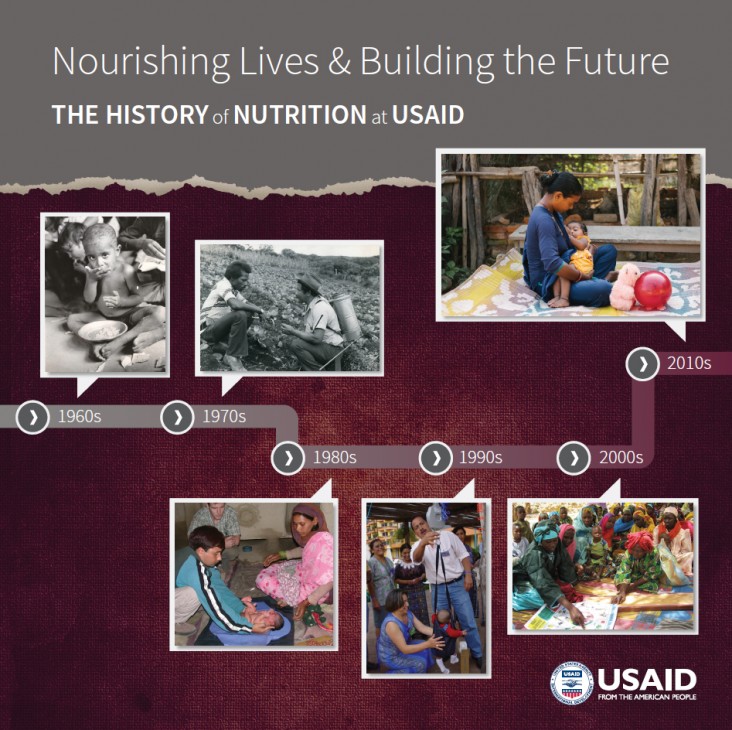
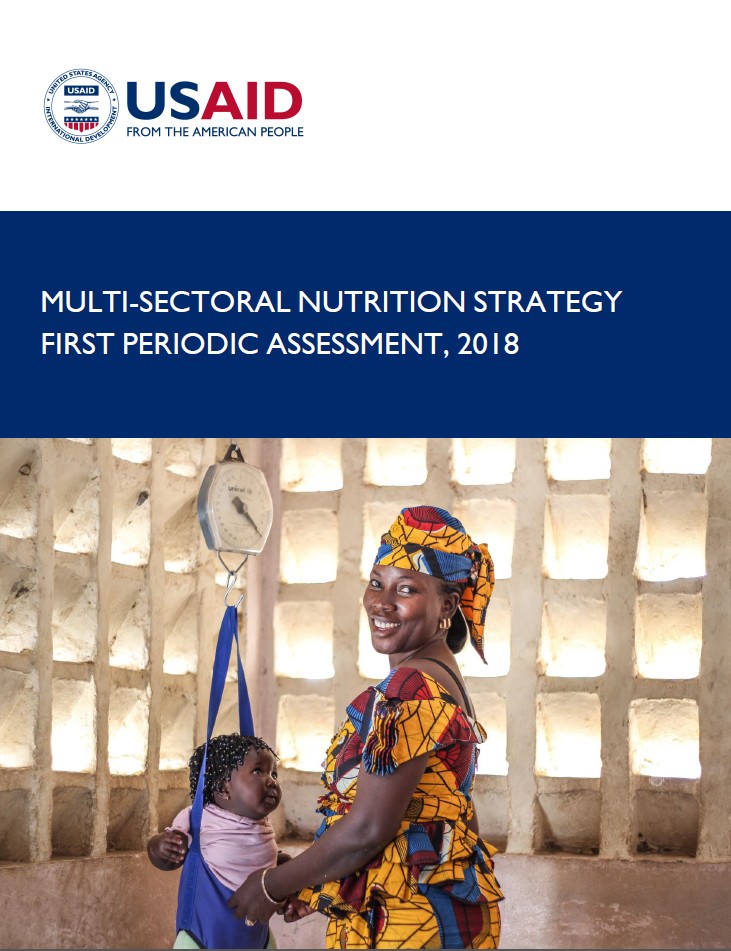
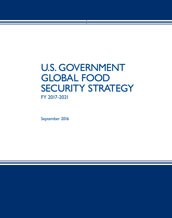
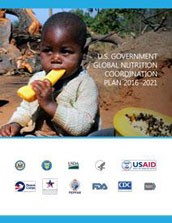
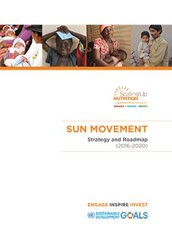
Comment
Make a general inquiry or suggest an improvement.